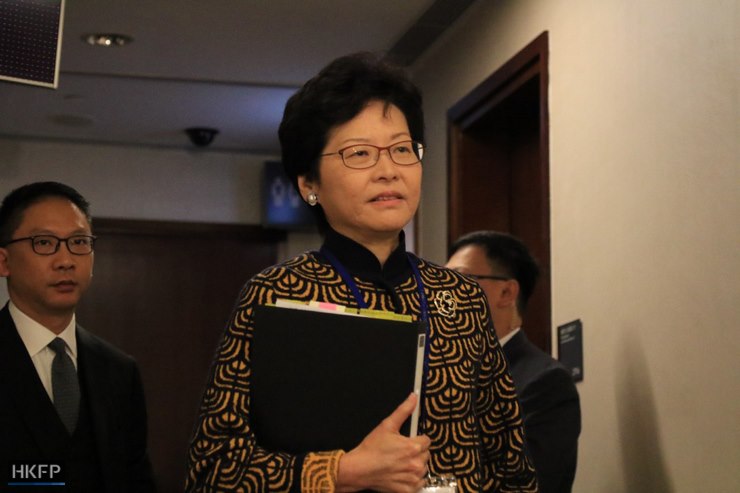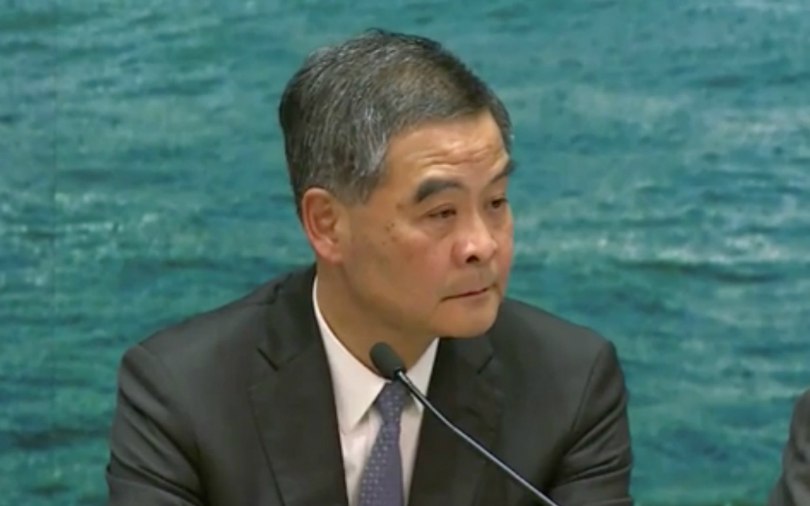Pro-Beijing lawmaker Kwok Wai-keung has urged the Hong Kong government to challenge the seat of localist lawmaker Lau Siu-lai in light of Beijing’s recent ruling on the oath-taking controversy.
The pro-Beijing camp demanded that Lau’s oath be invalidated, on the basis that Lau read her oath in slow motion at the Legislative Council’s swearing-in session last month. Lau later said on social media that the purpose was to deprive the pledge of its meaning by reading out each word in isolation.

On Monday, Beijing handed down a binding interpretation of Article 104 of the Basic Law, which stipulates that oath-takers must swear allegiance to the Hong Kong SAR. The interpretation added that oath-takers must pledge “sincerely and solemnly,” but without defining the terms.
During a Q&A session with Chief Secretary Carrie Lam and Secretary for Justice Rimsky Yuen on Wednesday, Kwok asked the officials if the administration will challenge the validity of Lau’s oath.
He referred to Lau’s explanation of why she read her oath in slow motion as evidence of her insincerity. “I think she should be responsible for her words,” said Kwok.
He added that there are rumours the government is going to strip more lawmakers of their seats. “I’m sure the pan-democrats are in fear that their seats may be taken away,” he said.
Lam responded that the government is still examining the implications of Monday’s interpretation. “It would be hard to state the specifics at this stage but we reserve the right to take action,” she said.
The chief secretary added that pledges taken by lawmakers are binding from the moment they stand as candidates. “That’s why in the nomination form they’re required to make a declaration,” she said.

In addition, Lam said, even if government officials responded to lawmakers’ questions, it did not mean the government has confirmed that they are qualified.
Lau criticised Lam for insulting democratically elected lawmakers and asked the government to apologise.
‘Father of independence’
On behalf of the Hong Kong Federation of Trade Unions, Kwok urged the government to consider seeking judicial review over Lau’s oath, on the basis that “many people are critical of how Lau took her oath.”
Lau said in response that many lawmakers also refused to accept the oath of Chief Executive Leung Chun-ying. Leung, in his swearing-in session as chief executive in 2012, omitted one instance of “Hong Kong” in his pledge.
“The government is cracking down on pan-democrats and it is spending taxpayers’ money in seeking judicial review challenges,” said Lau.
In addition, she said, if the interpretation is a response to the rise of the pro-independence movement, then the chief executive’s qualification would also be in question.

“Chief Executive CY Leung has always been regarded as the father of Hong Kong independence… by inciting sentiments of independence,” she said. “There is also speculation that CY Leung is trying to use the oath-taking saga to pave the way for the legislation of Article 23 [security law].”
Lau asked the chief secretary to confirm recent news reports of Leung saying in private that he would like to legislate Article 23 of the Basic Law during his term of office.
Lam criticised Lau for exaggerating the matter, and said that it is the government’s constitutional duty to make legislations regarding Article 23.
Basic Law Committee Chair Li Fei said on Monday that advocates of self-determination are “essentially” promoting independence and thereby contravene the Basic Law. Lau is among the few lawmakers who advocate self-determination.
Lau and other self-determination advocates said they will not give up on their ideals.
